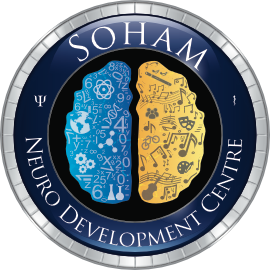
Learning
Difficulty
A learning difficulty is a condition that impairs a person’s ability to acquire and process information. Contrary to popular belief, it is not a problem related to intelligence or motivation. Learning disabilities are most often diagnosed in children, often noticed due to their performance in school.
Common learning difficulties include Dyslexia (difficulty reading), Dysgraphia (difficulty writing), Dyscalculia (difficulty understanding and solving arithmetic and numerical concepts) and Dyspraxia (difficulties in activities requiring coordination and movement).
Knowing the early signs of a learning disorder allows parents to get their children the assistance they need as soon as possible. As a result, it’s important to keep track of your child’s developmental milestones. In toddlers and preschoolers, delays such as late walking or talking, as well as socialization problems, may be indicators of a learning disability.
Counselors can help identify particular areas of difficulty and develop specialized learning plans and strategies in order to adjust learning and teaching methods so as to best fit a student’s strengths and improve upon their areas of weakness. Counseling can also be helpful when those with a learning difficulty feel shy, anxious or feel uncomfortable expressing themselves with others, which is often the case as they find it difficult to relate to their peers and friends. Such situations can cause emotionally distressing.
Talking through these anxieties with a mental health professional has proven to be beneficial for all those present with such symptoms. We also collaborate with parents, schools and shadow teachers to look at how best to help the child.
